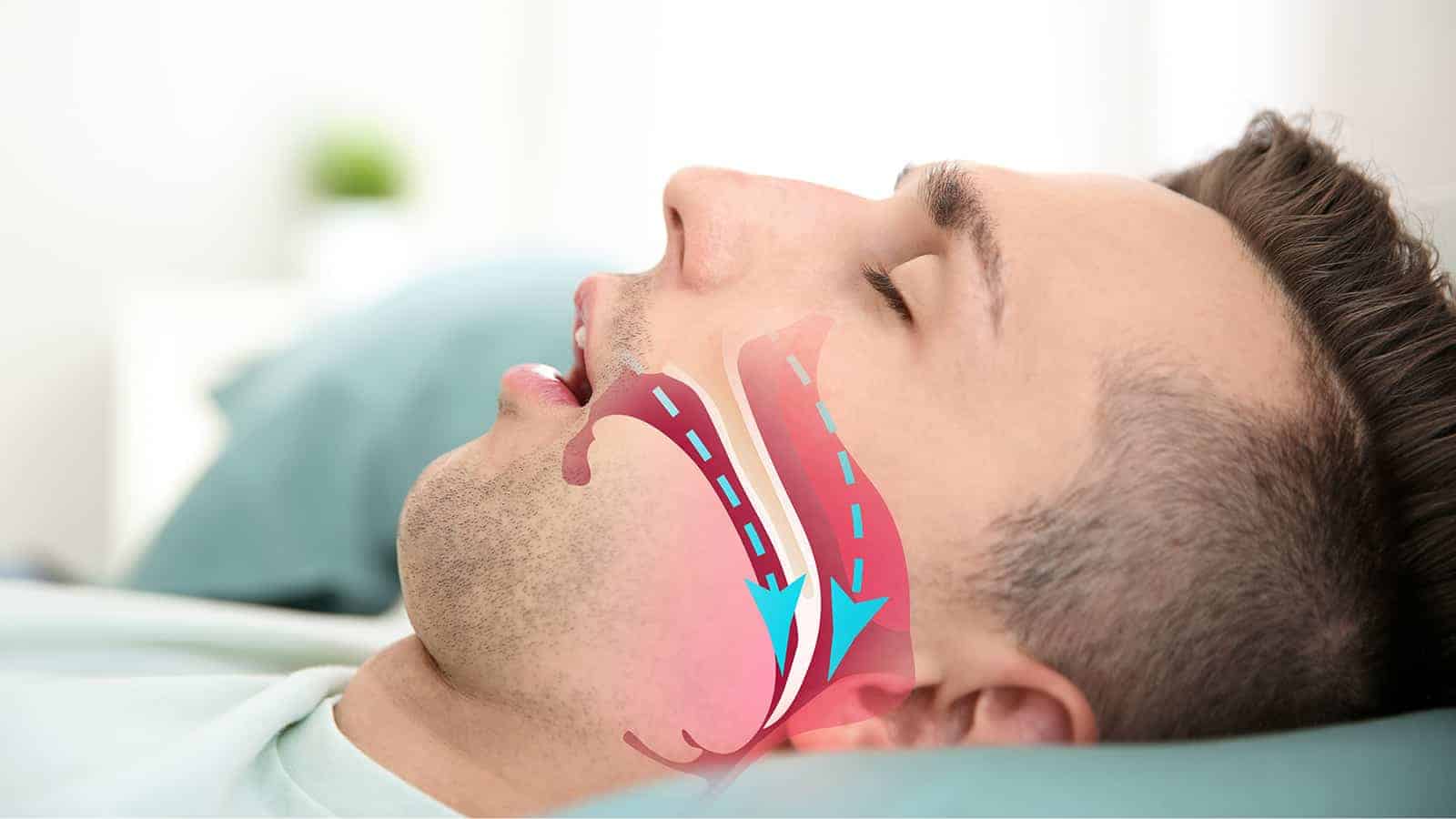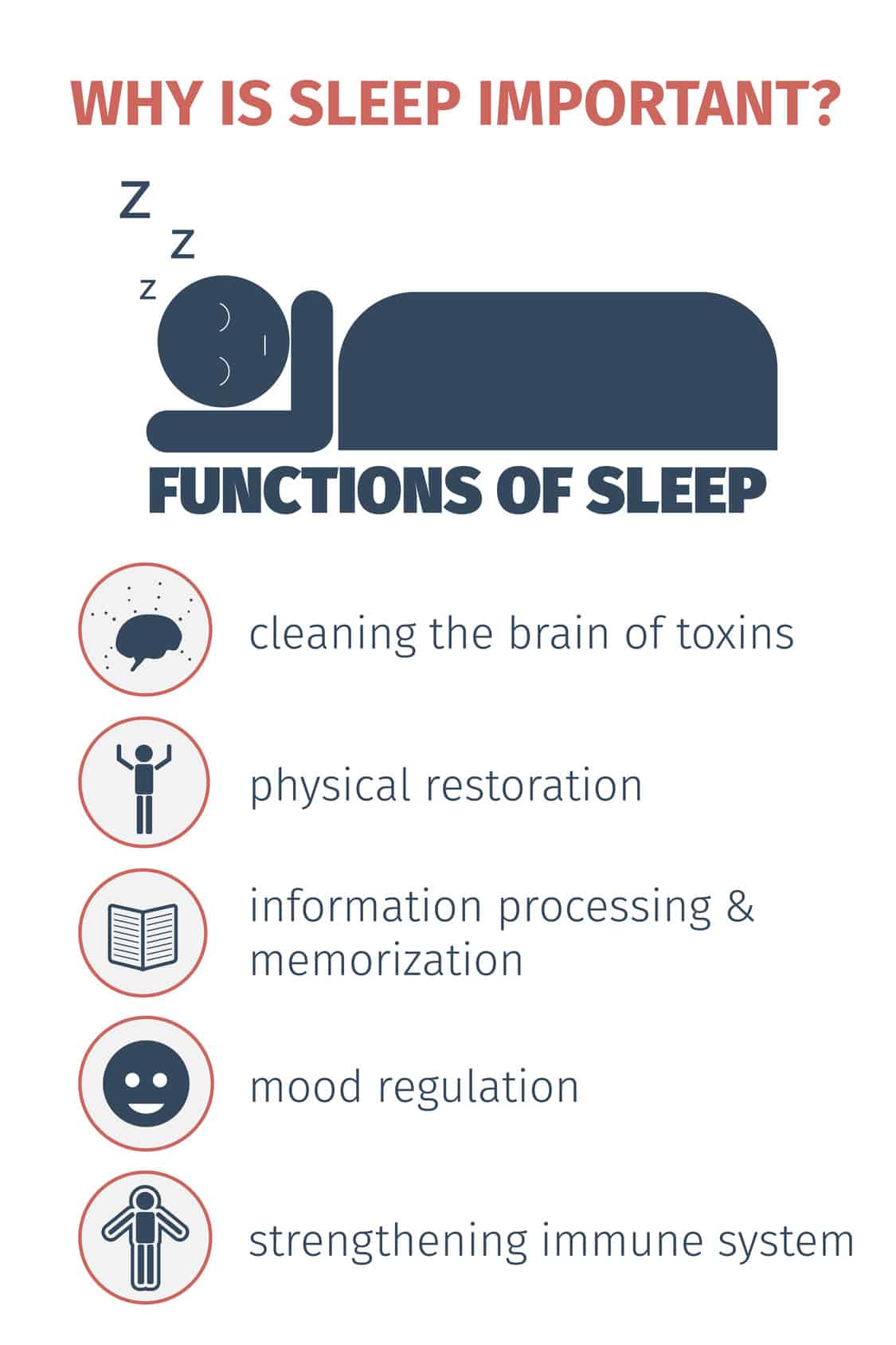Snoring is a harsh or hoarse sound someone makes when they sleep. It is a common problem, but some people have it worse than others, interfering with their sleep quality. But what causes someone to snore? Finding the cause of the abnormal breathing during sleep can help you remedy the issue and feel better.
Nearly 90 million Americans snore because of different underlying conditions, but each issue can cause a breathing obstruction. Typically, the obstruction stems from relaxed tissue blocking the airway. The air flowing past the lax tissue makes the tissue vibrate when you inhale, resulting in the buzzing sound.
Figuring out the underlying cause of the harsh breathing can help you overcome the issue. You can find ways to remedy the problem, helping you sleep better each night. If someone in your life snores, you can use this information to help them instead.
Whether it’s you or someone in your life that snores, figuring out the cause is the first step. Your underlying cause might differ from someone else’s, meaning what works for you may not work for others. A remedy will help you sleep restfully, allowing you to feel better overall.
Critical Signs That You Snore at Night
Most people know they have harsh breathing while they sleep because someone else tells them. However, if you don’t sleep near anyone, you might not know for sure. Some of the symptoms include these:
- Daytime sleepiness
- Difficulty concentrating
- Headaches in the morning
- Sore throat in the morning
- Restless sleep
- Gasping or choking during the night
- High blood pressure
- Chest pain while you sleep
Sixteen Things That Cause Someone to Snore
These things can cause snoring.
1. Being Overweight
Excess weight is one of the most common causes of noisy breathing while you sleep. Implementing a healthier lifestyle can help someone eliminate the issue and sleep better.
Weight gain causes thicker neck tissue, decreasing the internal diameter of your throat. Not only will losing weight help you sleep better, but it’ll improve your overall quality of life.
2. Sleep Position
Your sleep position can cause or worsen harsh breathing. For instance, lying on your back can make your soft palate and the base of your tongue fall back into your throat. When this happens, it obstructs your airway and causes abnormal breathing patterns.
If you usually sleep on your back, start sleeping on your side instead. You might roll onto your back during the night, but using a body pillow or something similar can help prevent it.
3. Alcohol
You might have noticed that people often have hoarse breathing during sleep after consuming alcohol. Alcohol causes sleep disruption because human bodies have a defense mechanism that prevents your airway from becoming blocked as you sleep. Drinking alcohol decreases those defenses, hindering your body’s natural ability to protect you.
Additionally, alcohol causes the muscles in your body to relax, including the throat muscles. With relaxed throat muscles, harsh breathing is almost inevitable. Plus, it relaxes the tongue, causing it to fall back and block the airway, too.
While all of that information is enough to convince you that alcohol can cause sleep disruption, there is yet another reason. Drinking alcohol causes nasal congestion, which further contributes to the problem. Cut back on how much you drink before bed, and give yourself enough time to let the alcohol wear off being dozing off.
4. Sleeping Pills
When you take sleeping pills, it’s likely because you want to sleep better. You might think it’ll help the wheezing that wakes you up during the night. However, the loud breathing and rasping will still wake you up as you try to sleep.
Sleeping pills relax your muscles, including your throat muscles. When your throat muscles relax, they partially obstruct your airway, worsening disruptions. Taking the medications to help you sleep can exacerbate the issue, causing you to miss more rest.
5. Sedatives and Tranquilizers
These medications make you relax, potentially causing someone to experience noisy breathing while sleeping. If you’re already experiencing abnormal breathing while you sleep, mention it to your doctor. They might have another solution that won’t interfere with your sleep.
6. Pregnancy
While pregnancy is typically a joyful time in a woman’s life, it can cause a few issues. Nasal congestion is more prevalent during pregnancy, potentially obstructing the airway. When this happens, noisy breathing during sleep is sure to follow.
7. Smoking Cigarettes
There are plenty of good reasons to stop smoking, and now you can add to the list. Smoking cigarettes can cause or worsen abnormal breathing. The smoke irritates the lining of your nose and throat, causing swelling and inflammation.
While the swelling and inflammation alone can cause an obstruction, it also causes congestion. The more you smoke, the worse the issue will become. Plus, secondhand smoke can irritate your throat and nasal cavity, so even being around it can cause problems.
8. Nasal Congestion
If your nasal passages become blocked by congestion, it can cause abnormal breathing while you sleep. The blockages make it hard for air to travel in and out. There are many causes of nasal congestion, including allergies or suffering from a cold.
9. Getting Older
Aging can cause your skin and tissues to lose elasticity and moisture. When this happens, the tissue is more susceptible to vibrations that cause noise. The vibrations might result in a wheezing or raspy sound.
10. Allergies
If you suffer from allergies, you’re more likely to experience harsh breathing while you sleep. Keep your bedroom free of allergens by dusting and vacuuming often. You could also consider keeping your pet out of your bedroom or off of your bed.
Your pillow is a common location for dust and dander to settle, which will intensify the issue. Putting your pillow in the dryer for one cycle can help eliminate any allergens causing a problem.
Some allergens to look out for include the following:
- Mold
- Dust mites
- Animal dander
11. Dry Air
If the air in your home is excessively dry or dusty, it can trigger your body’s mucous membranes. Then, your mucous membranes work overtime to eliminate particles and pollutants from your airway. The process leads to congestion, which is a direct cause of harsh breathing.
12. Sleeping with Your Mouth Open
Sleeping with an open mouth can cause wheezing and snorting noises while someone sleeps. It can also worsen the issue if there is another underlying factor. Mouth breathing can cause the air to hit the back of your throat and vibrate the soft tissues, creating a buzzing sound.
13. The Anatomy of Your Mouth
Not everyone’s mouths have the same shape, and the anatomy could cause problems. If your soft palate is thick or low, it can cause your airway to narrow. Plus, an elongated uvula, the tissue that dangles as the back of your throat, can also obstruct your airway.
14. Sleep Disorders
People suffering from sleep apnea are likely to experience disrupted breathing while sleeping. It is a serious medical condition that causes the throat tissues to block the airway. Some people suffering from this condition stop breathing while sleeping, waking up by snorting or gasping.
After the person wakes up, they might struggle to fall back asleep. However, once they doze off, they will likely wake up the same way again later. The next episode could occur within minutes or hours, disrupting their sleep.
People with sleep apnea often snore for a bit, and then the rasping stops as they stop breathing entirely. Because sleep apnea is a medical condition, so you must see your doctor immediately. The doctor can help you get the situation under control, improving your health and sleep quality.
15. Sleep Deprivation
If you haven’t’ been getting enough rest, you’ll likely experience some breathing abnormalities when you finally get a chance to catch up. You’ll sleep more deeply than usual, causing your body to react to disturbances. Plus, the harder you sleep, the more relaxed your throat muscles become, allowing them to obstruct your airway.
At his point, sleep deprivation turns into an endless cycle. The harsh breathing leads to sleep disruptions, and lack of sleep leads to more wheezing.
16. Weak Throat Muscles
When someone has been a snorer for a long time, it can cause damage to the throat muscles. Frequent or severe raspy breathing during sleep can weaken the muscles in your upper airway. It also affects the tongue and soft palate.
This damage makes the throat muscles more susceptible to collapsing and obstructing your airway. This proves how essential it is to get your breathing disruptions under control right away.
Final Things on Knowing the Things That Cause Someone to Snore
Occasional harsh breathing during sleep aren’t anything to worry about. However, if someone snores chronically, it could harm their overall health. Plus, it can put a strain on your relationship if you sleep with a partner, too.
If you or your partner experience abnormal breathing while sleeping, finding the underlying cause can make all the difference. Once you know what’s causing the sleep disruption, you can work on finding a remedy.

















 Community
Community

